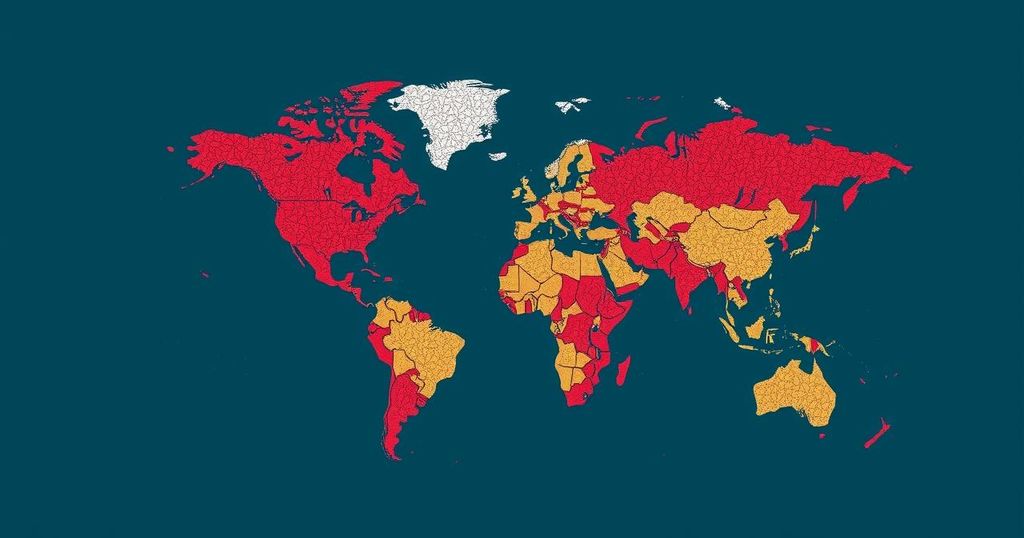World news
AFGHANISTAN, ASIA, BIDEN, CUBA, DEMOCRAT, DONALD TRUMP, EUROPE, FLORIDA, HAITI, HOMELAND SECURITY, KAMAL, KAMALA HARRIS, LEGISLATION, MEXICO, NAREE KETUDAT, NATIONAL SECURITY, NICARAGUA, NORTH AMERICA, PHILIPPINES, POLITICS, PRESIDENTIAL ELECTION 2024, PRESIDENTIAL ELECTIONS, SOUTH AMERICA, SOUTH FLORIDA, U. S, UKRAINE, UNITED STATES, VENEZUELA, WASHINGTON, WLRN
Ethan Kim
0 Comments
Biden Administration Ends Humanitarian Parole for Select Migrants
Biden administration will not extend a two-year humanitarian parole program for migrants from Venezuela, Haiti, Cuba, and Nicaragua. The decision impacts a significant number of individuals in South Florida and aligns with increasing political pressures regarding immigration policies as elections approach. Those affected must now seek alternative legal status or face deportation after the program’s expiration.
The Biden administration has decided not to extend a two-year humanitarian parole program that provided legal entry to migrants from Venezuela, Haiti, Cuba, and Nicaragua arriving by plane with sponsorship. Launched in 2022, this initiative was designed to offer a legal alternative for migrants amid increasing crossings at the U.S.-Mexico border. The impact of this decision is expected to be particularly significant in South Florida, where sizeable communities of these nationalities reside. Amidst a backdrop of intensifying political pressures, the administration’s choice comes just one month before the 2024 presidential elections. Homeland Security officials have mandated that individuals who have reached the two-year expiration must seek alternative legal status, depart the U.S., or face potential deportation. The program had benefited approximately 214,000 Haitians, 117,000 Venezuelans, 111,000 Cubans, and 96,000 Nicaraguans who were granted permission to live and work in the U.S. during this period. Various avenues remain open for legal residency, such as the Temporary Protected Status for those from regions facing extreme violence or disasters.
The humanitarian parole program, initiated under the Biden administration, aimed to mitigate the surge of migrants at the southern border by providing an alternative legal route for select nationalities arriving with sponsor support. The program initially targeted Venezuelans but quickly expanded to include Haitians, Cubans, and Nicaraguans, whose increased migration trends necessitated a more structured approach. This decision has raised concerns about its implications for the communities in South Florida, who are significantly composed of these migrant groups, highlighting the delicate balance between immigration policy and humanitarian considerations.
In conclusion, the Biden administration’s decision not to extend the humanitarian parole program marks a significant procedural shift in U.S. immigration policy just ahead of the 2024 elections. While the program provided legal reprieve for numerous migrants, its end forces individuals to seek alternative legal avenues or leave the country. The political ramifications of this decision, particularly in South Florida, could impact the livelihoods of many migrants as the administration navigates complex immigration challenges.
Original Source: www.wlrn.org




Post Comment